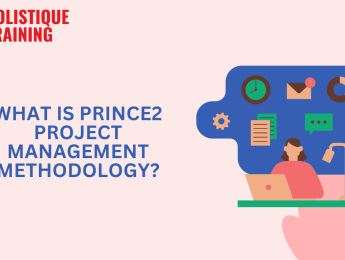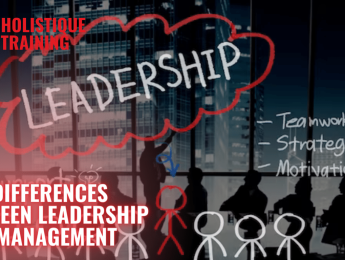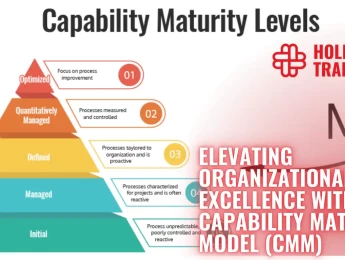- Table of Contents
- Introduction
- What Is Destination Management?
- Integrated Planning
- Sustainability
- Stakeholder Collaboration
- Visitor-Centric Approach
- The Responsibilities of a Destination Management Organisation
- Strategic Planning
- Marketing and Promotion
- Product Development
- Visitor Services
- Stakeholder Collaboration
- Quality Control and Regulation
- Crisis Management
- How to Execute Destination Management
- 1- Destination Assessment
- 2- Stakeholder Engagement
- 3- Destination Branding
- 4- Market Research and Segmentation
- 5- Sustainable Development
- 6- Collaboration and Partnerships
- 7- Monitoring and Evaluation
- 8- Innovation and Adaptability
- DMOs’ Role Today
- The Future of Destination Management
- Digital Transformation
- Sustainable Tourism
- Community Engagement
- Wellness and Well-being Tourism
- Conclusion
Introduction
In the bustling world of travel and tourism, destination management plays a vital role in ensuring visitors have memorable experiences while benefiting the local community and preserving a destination's natural and cultural heritage. This blog post aims to shed light on the concept of destination management, exploring its definition, the responsibilities of a destination management organisation (DMO), and how it is executed effectively.
What Is Destination Management?
Destination management refers to the strategic planning and coordination of various elements within a destination to maximise its appeal to tourists while minimising any negative impacts. It involves the integration of various sectors, including tourism, hospitality, transportation, infrastructure, and local businesses, to create a cohesive and sustainable destination experience.
To better understand the concept of destination management, let's break down its key elements:
Integrated Planning
At its core, destination management is about meticulous planning. It involves identifying the destination's unique strengths and features and developing strategies to make it a more attractive and desirable place for visitors. Integrated planning considers various aspects such as local culture, heritage, geography, and market dynamics.
Sustainability
Sustainability is a central theme in destination management. It ensures that tourism doesn't harm the environment, local communities, or the destination's cultural heritage. Sustainable practices are crucial to preserve a destination's appeal in the long run.
Stakeholder Collaboration
Destination management is not a one-person show. It requires the cooperation of all relevant stakeholders, including local businesses, government agencies, community groups, and residents. Effective collaboration ensures that the interests of all parties are considered and that the destination thrives.
Visitor-Centric Approach
Creating memorable experiences for visitors is a fundamental aspect of destination management. Visitors should feel welcomed, informed, and engaged while exploring the destination. This requires providing them with the necessary information, facilitating their stay, and offering a range of activities and services.
The Responsibilities of a Destination Management Organisation
A Destination Management Organisation (DMO) is a key player in the destination management process. It acts as a facilitator, collaborator, and advocate for all stakeholders involved in the tourism industry. Each DMO possesses its own distinct characteristics and priorities, according to Mize. Some DMSs may prioritise leveraging local resources and enhancing accommodation offerings, while others may emphasise promoting tourist attractions, organising events, and curating diverse activities. Here are some primary–and common–responsibilities of a DMO:
Strategic Planning
Strategic planning is the cornerstone of a DMO's responsibilities. DMOs conduct in-depth market research to identify trends and understand travellers' evolving needs. They can anticipate market shifts and plan initiatives by analysing data and consumer behaviour. This strategic insight helps align the destination's offerings with the preferences of target demographics, ensuring that promotional efforts are focused and effective.
Marketing and Promotion
DMOs engage in multifaceted marketing strategies to create awareness about the destination. They utilise various platforms, including social media, travel websites, and travel agencies, to showcase the destination's unique attractions and experiences. A DMO's marketing efforts are limited to potential tourists and extend to travel trade shows and collaborations with influencers and bloggers. Effective storytelling through compelling visuals and narratives is a key aspect, capturing the essence of the destination and enticing travellers to explore further.
Product Development
DMOs work closely with local businesses, entrepreneurs, and artisans to diversify the tourism products and services available. This collaboration fosters innovation, encouraging the creation of unique offerings that align with the destination's brand. It could involve developing themed tours, culinary experiences, adventure activities, or cultural events. DMOs play a catalytic role in identifying gaps in the market and nurturing local talents to fill those gaps, ensuring a continuous evolution of the destination’s offerings.
Visitor Services
Ensuring a seamless experience for visitors is paramount. DMOs provide comprehensive visitor services such as information centres, interactive maps, and mobile apps. These resources guide tourists on local attractions, accommodations, dining options, and transportation, enhancing their overall experience. Furthermore, DMOs facilitate booking services, allowing visitors to secure accommodations, tours, and tickets in advance, making their journey hassle-free and enjoyable.
Stakeholder Collaboration
Collaboration is at the heart of destination management. DMOs act as mediators, bringing together various stakeholders, including government bodies, local businesses, community groups, and residents. By fostering partnerships, DMOs ensure all parties agree on the destination’s vision. They encourage sustainable practices, such as supporting local artisans and promoting eco-friendly tourism. DMOs also facilitate dialogue and resolve conflicts, ensuring the destination's development is harmonious and inclusive.
Quality Control and Regulation
DMOs establish and uphold quality standards within the destination. This involves implementing regulations related to the tourism industry, ensuring that accommodations, restaurants, and tour operators meet certain criteria. By maintaining high standards, DMOs enhance the destination’s reputation, encouraging positive reviews and repeat visits. Quality control also extends to safety measures, ensuring that tourists are secure during their stay, especially during unforeseen events like natural disasters or pandemics.
Crisis Management
DMOs are pivotal in crisis management during natural disasters, political unrest, or health emergencies. They disseminate accurate information to tourists, guide them on safety protocols, and collaborate with authorities to ensure visitors' well-being. DMOs often establish contingency plans and communication channels to respond swiftly, mitigating potential damage to the destination's reputation and ensuring the safety of both tourists and locals.
In summary, a Destination Management Organisation is the linchpin in a destination's tourism ecosystem. Their multifaceted responsibilities encompass strategic planning, marketing, product development, visitor services, stakeholder collaboration, quality control, and crisis management. By fulfilling these roles effectively, DMOs contribute significantly to the sustainable growth and positive reputation of their respective destinations, ensuring memorable experiences for travellers while preserving the destination's cultural and natural heritage.
How to Execute Destination Management
Executing destination management requires a holistic approach that encompasses various strategies and initiatives. Here are key steps to effective destination management:
1- Destination Assessment
A thorough destination assessment is the foundation of strategic planning. DMOs conduct comprehensive evaluations of the destination's current state, considering both internal and external factors. This includes analysing natural resources, cultural heritage, infrastructure, existing tourism products, and the overall visitor experience. SWOT analysis (Strengths, Weaknesses, Opportunities, Threats) is often employed to gain a holistic understanding. This assessment provides crucial insights, guiding subsequent decision-making processes.
2- Stakeholder Engagement
Engaging stakeholders is vital for the success of any destination management initiative. DMOs facilitate collaborative platforms where government bodies, local businesses, community groups, residents, and NGOs can voice their concerns and ideas. Regular consultations, workshops, and town hall meetings foster a sense of ownership among stakeholders. Engaging with local communities ensures that their cultural values are respected and their traditions are preserved, thus enhancing the authenticity of the visitor experience.
3- Destination Branding
Destination branding is not merely about creating a catchy logo or slogan; it's about capturing the essence of the destination. DMOs work with branding experts to develop a unique identity that reflects the destination's personality and resonates with the target audience. This brand serves as a guiding principle for all marketing and promotional activities. It helps craft consistent messages that evoke specific emotions, making the destination more relatable and memorable to potential visitors.
4- Market Research and Segmentation
In-depth market research is essential for understanding the diverse needs of travellers. DMOs conduct surveys and interviews and analyse online behaviours to identify different market segments. These segments can be based on demographics, interests, travel behaviour, or psychographics. By understanding the preferences of various segments, DMOs can tailor their marketing messages and experiences, ensuring that promotional efforts are highly targeted and resonate with specific groups of travellers.
5- Sustainable Development
Sustainability is a fundamental pillar of modern destination management. DMOs collaborate with local communities, businesses, and environmental organisations to promote responsible tourism practices. This includes initiatives like waste management, energy conservation, promoting eco-friendly transportation, and supporting wildlife conservation efforts. Sustainable tourism preserves the natural environment and fosters a positive relationship between tourists and the local community.
6- Collaboration and Partnerships
Collaboration is key to amplifying a destination's reach. DMOs establish strategic partnerships with airlines, travel agencies, tour operators, and local businesses. By creating attractive travel packages and collaborative marketing campaigns, these partnerships can significantly enhance the destination's visibility. Collaboration also extends to cross-promotion with neighbouring regions, encouraging tourists to explore multiple destinations, thereby boosting regional tourism as a whole.
7- Monitoring and Evaluation
Continuous monitoring and evaluation are vital to ensuring the effectiveness of destination management efforts. DMOs establish Key Performance Indicators (KPIs) across various domains such as visitor satisfaction, economic impact, environmental impact, community engagement, and digital engagement. Regular data analysis allows DMOs to gauge their initiatives' success, identify improvement areas, and adapt strategies accordingly. Visitor feedback, online reviews, and social media sentiments are valuable sources of information, providing real-time insights into the visitor experience.
KPI Category | Specific KPIs |
Visitor Satisfaction | Average visitor ratings, Net Promoter Score (NPS) |
Economic Impact | Tourism revenue, Job creation, Business growth |
Environmental Impact | Carbon footprint, Water consumption, Waste reduction |
Community Engagement | Number of community-led initiatives, Local business partnerships |
Digital Engagement | Website traffic, Social media engagement, App downloads |
Table 1: Sample Key Performance Indicators for Destination Management
8- Innovation and Adaptability
Innovation is crucial in the rapidly evolving travel landscape. DMOs need to stay abreast of emerging trends, technologies, and traveller preferences. Embracing innovation might involve developing virtual reality experiences, launching mobile apps for seamless visitor navigation, or incorporating AI-driven chatbots for personalised customer service. Additionally, DMOs must be adaptable and ready to pivot strategies in response to changing market dynamics or unforeseen events like natural disasters or economic downturns.
In short, executing destination management requires meticulous planning, stakeholder engagement, branding, market research, sustainable development, collaboration, continuous evaluation, and a proactive approach to innovation. By navigating these multifaceted challenges, DMOs can create vibrant, sustainable destinations that offer enriching experiences to travellers while preserving the destination's cultural and natural heritage for generations to come.
DMOs’ Role Today
According to Forward Keys, the role of DMOs has become increasingly critical in today's ever-evolving travel landscape. With the rise of technology, changing consumer behaviours, and growing concerns for sustainability, DMOs are tasked with navigating these complexities. They must adapt their strategies to promote responsible tourism, foster community engagement, and leverage digital platforms to effectively market and manage destinations that align with the evolving needs and expectations of travellers and locals alike.
In an era where travellers are more connected than ever, DMOs need to harness the power of digital platforms and social media to promote their destinations. They should use data-driven insights to tailor marketing campaigns and engage with potential visitors. DMOs also play a crucial role in advocating for sustainable tourism practices, which are increasingly demanded by conscious travellers who want to minimise their impact on the environment and support local communities.
Moreover, DMOs can help destinations adapt to shifting travel trends. For example, with the growth of experiential travel, DMOs can collaborate with local businesses to create immersive, authentic experiences that cater to the desires of modern travellers.
The ongoing effects of the COVID-19 pandemic have further highlighted the importance of DMOs. These organisations have played a vital role in disseminating information about travel restrictions, health and safety measures and assisting tourists in navigating the complexities of the pandemic. Their adaptability and quick response to these challenges have shown that DMOs are indispensable in times of crisis.
The Future of Destination Management
As we look ahead, the future of destination management is likely to be shaped by several key trends and developments:
Digital Transformation
The digital revolution continues to redefine the way DMOs operate. Advanced technologies such as big data analytics, artificial intelligence, and virtual reality are revolutionising the visitor experience. DMOs are increasingly leveraging these tools to gain profound insights into traveller behaviour. Big data analytics enable DMOs to analyse vast amounts of data, helping them understand visitor preferences, track trends, and personalise marketing campaigns. Artificial intelligence, on the other hand, facilitates chatbots and virtual assistants, providing real-time assistance to travellers, enhancing customer service, and improving overall visitor satisfaction.
Virtual reality and augmented reality are transforming how tourists explore destinations. DMOs can create immersive virtual tours, allowing potential visitors to experience the destination from the comfort of their homes. Augmented reality guides enhance on-site experiences, providing interactive, informative overlays on historical sites or attractions. These technologies enhance visitor engagement and contribute to marketing efforts, enticing travellers with captivating previews of their potential experiences.
Sustainable Tourism
Sustainability will remain at the forefront of destination management. In fact, in 2022, a notable 80% of destinations included in the GDS-Index implemented a sustainable tourism strategy, marking a significant increase from the 47% recorded in 2019. Travellers are increasingly eco-conscious, seeking destinations that prioritise environmental conservation, support local communities, and promote responsible tourism practices. DMOs will play a pivotal role in spearheading sustainability initiatives. This could involve promoting green accommodations, encouraging eco-friendly transportation options, implementing waste reduction programmes, and supporting wildlife conservation efforts.
Additionally, DMOs will collaborate with local communities to establish sustainable tourism practices. Community-based tourism initiatives empower local residents, enabling them to participate in tourism activities while preserving their cultural heritage actively. These efforts create a more authentic visitor experience and contribute to local communities' socioeconomic development.
Community Engagement
Engaging with the local community will become increasingly critical. DMOs will facilitate initiatives that empower residents, such as skill development programmes, cultural exchanges, and community-led tourism projects. By involving the community in tourism, destinations can create a sense of pride and ownership among residents. This, in turn, leads to a more authentic and welcoming visitor experience.
Moreover, DMOs will focus on educating the local community about the importance of tourism. By fostering a positive attitude toward tourism, residents become ambassadors for their own destination, providing genuine hospitality and enriching interactions with visitors. Community engagement initiatives will also include programmes that address the preservation of cultural heritage, ensuring that traditions are passed down to future generations.
Wellness and Well-being Tourism
The demand for wellness and well-being experiences will continue to rise. DMOs will collaborate with spas, wellness resorts, yoga retreats, and holistic health centres to promote these offerings. Wellness tourism enhances visitors' physical and mental well-being and contributes significantly to the local economy. These initiatives create employment opportunities, support small businesses, and enhance residents' overall quality of life.
Moreover, DMOs will invest in promoting the destination as a sanctuary for relaxation and rejuvenation. This could involve organising wellness festivals, meditation retreats, or workshops on holistic living. By positioning the destination as a hub for well-being, DMOs can attract health-conscious travellers seeking a serene and nurturing environment.
In summary, the future of destination management will be characterised by technological innovation, a strong focus on sustainability, meaningful community engagement, and catering to the growing demand for wellness experiences. By embracing these trends, DMOs can enhance the visitor experience and contribute to the holistic development of their destinations, ensuring a vibrant and sustainable future for tourism.
Conclusion
Destination management is a multifaceted process that involves strategic planning, collaboration, and sustainable practices to create a compelling visitor experience while benefiting the local community and preserving the destination's natural and cultural heritage. By understanding the responsibilities of a DMO and following a comprehensive execution plan, destinations can thrive in today's competitive tourism landscape, offering memorable experiences to visitors while ensuring long-term sustainability.























